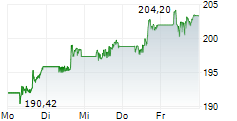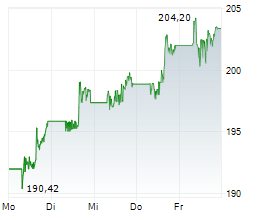NEW BRUNSWICK (dpa-AFX) - Johnson & Johnson (JNJ) announced first results from Cohort 4 of the Phase 2b SunRISe-1 study evaluating TAR-200-an intravesical gemcitabine releasing system-for patients with certain types of bladder cancer. The results showed the promise of TAR-200 in the patient population with more than an 80 percent disease-free survival (DFS) rate without the need for reinduction and 94 percent of patients able to preserve their bladder.
The high disease-free survival and bladder preservation rate combined with the well-tolerated safety profile in these patients with Bacillus Calmette-Guérin (BCG)-unresponsive, high-risk non-muscle-invasive bladder cancer (HR-NMIBC) with papillary-only disease (high-grade Ta or T1) show the potential of TAR-200 as a meaningful alternative to surgery.
According to the company, the first results of this interim analysis from Cohort 4 of the SunRISe-1 study demonstrated 85.3 percent and 81.1 percent DFS rates at six and nine months, respectively, in patients with BCG-unresponsive, HR-NMIBC with papillary-only disease treated with TAR-200 monotherapy. These high DFS rates are particularly encouraging given the significant risk of recurrence in this population.
Among patients with high-grade Ta and T1 disease, DFS rates remained consistently strong-85.7 percent and 84.7 percent at six months, and 82.1 percent and 79.4 percent at nine months, respectively. The strong DFS across both subtypes-despite their differing depths of invasion-underscores the potential of TAR-200 to deliver sustained tissue penetration. Notably, 94.2 percent of patients avoided radical cystectomy at median follow-up of 12.8 months.
The early progression-free and overall survival rates of 95.6 percent and 98 percent at nine months, respectively, are reassuring as disease progression or death were highly uncommon among patients treated with TAR-200. While 12-month DFS data is not yet mature, these preliminary findings show that TAR-200's sustained intravesical gemcitabine delivery may potentially offer durable disease control while minimizing the need for invasive procedures.
These results support continued evaluation in the ongoing Phase 3 SunRISe-5 study, comparing TAR-200 to chemotherapy in patients with BCG-pretreated, papillary-only HR-NMIBC.
For More Such Health News, visit rttnews.com.
Copyright(c) 2025 RTTNews.com. All Rights Reserved
Copyright RTT News/dpa-AFX
© 2025 AFX News




